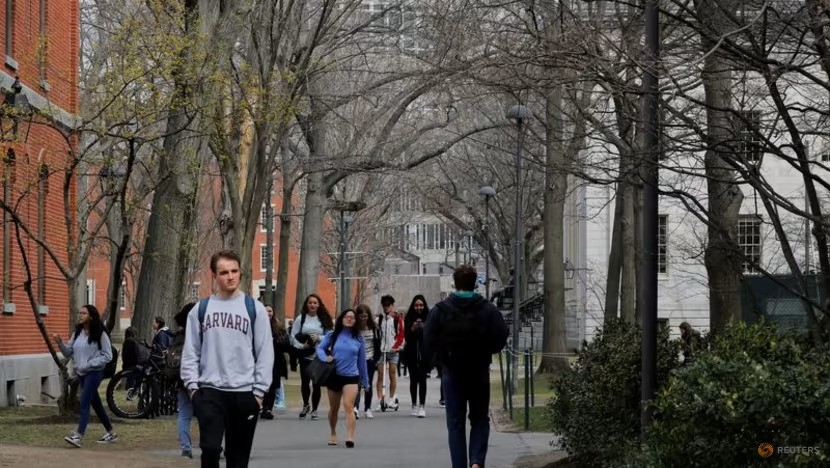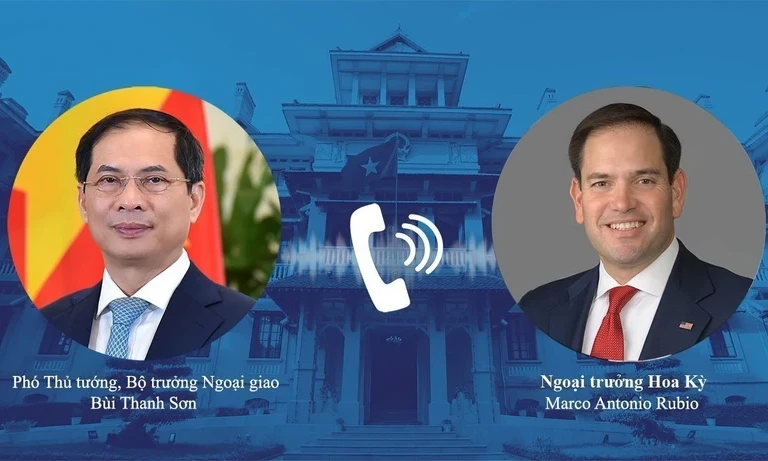According to AP, the investigation was conducted after the Boston-based non-profit organization “Lawyers for Civil Rights” filed a complaint on behalf of black communities in the New England region of the United States about Harvard University's "legacy" admissions policy.
The complaint asks the U.S. Department of Education to declare the “legacy” admissions policy illegal and force Harvard University to end the policy as long as it receives federal funding.
While the AP said the “legacy” admissions policy prioritizes applicants with ties to Harvard University donors and alumni, according to The New York Times, children of school employees are also given priority.
 |
| Students on the campus of Harvard University (USA). Photo: REUTERS |
The complaint states that applicants who are “children of acquaintances” are up to seven times more likely to be admitted to Harvard University than other applicants, about 70% of whom are white, and they can make up nearly a third of the students in a given course.
Of the 2019 Harvard students, about 28% had a parent or relative who attended the school. The New York Times also found that although “children of acquaintances” make up less than 5% of Harvard’s total applicants each year, about 30% of them are admitted.
“We are pleased that the U.S. Department of Education has promptly launched an investigation. Harvard University should voluntarily rescind this unfair and undeserved preferential policy,” the statement from the “Lawyers for Civil Rights” organization emphasized.
AP quoted White House press secretary Karine Jean-Pierre as saying that President Joe Biden has made it clear that “legacy” admissions policies hinder “our ability to build diverse student communities.” Previously, according to The New York Times, the White House boss had affirmed that this policy “expands privilege rather than opportunity.” Sarah Hinger, an attorney with the American Civil Liberties Union (ACLU), also said that “legacy” admissions policies generally “disproportionately benefit white and wealthy people.”
Every qualified applicant “deserves the opportunity to attend the college of their choice,” and “legacy” admissions policies exist “to undermine that,” said Derrick Johnson, president and CEO of the National Association for the Advancement of Colored People (NAACP), the nation’s oldest and largest civil rights organization. Johnson praised the Department of Education’s move to ensure that higher education “works for all Americans, not just the privileged few.”
Responding to the news of the US Department of Education investigation, Ms. Nicole Rura, a spokeswoman for Harvard University, said only that the school is reviewing to ensure that its admissions are “in compliance with the law.” The school will continue to “strengthen its ability to attract and support a diverse intellectual community.” “Harvard University is focused on opening doors of opportunity and increasing efforts to encourage applicants from diverse backgrounds to apply,” The New York Times quoted Ms. Rura as saying.
Not only Harvard University, the “legacy” admissions policy has been applied at many American universities for many years. The New York Times reported that the schools argued that this policy helps build “valuable bonds”, encourages “financial contributions that can be used for school scholarships” and that applicants who are “children of acquaintances” are all “highly capable”.
Two Democratic congressmen, Senator Jeff Merkley (D-Calif.) and Representative Jamaal Bowman (D-Calif.), have announced plans to introduce a bill that would prohibit US universities from giving preferential treatment to “family members” in the admissions process. According to Jane Sujen Bock of the “Coalition for a Diverse Harvard” – a group of Harvard students, staff and alumni – ending the “legacy” admissions policy is one of many steps that “Harvard and other universities can take to increase diversity and equity in admissions.”
A survey published by the Pew Research Center last year found that 75 percent of Americans believe that “relatives” should not be considered a criterion in college admissions. In fact, in recent years, many universities in the United States have begun to eliminate “legacy” admissions policies. According to AP, some schools include Amherst in Massachusetts, Carnegie Mellon in Pennsylvania, Johns Hopkins in Maryland and most recently Wesleyan in Connecticut.
While officials from the US Department of Education declined to comment, Art Coleman of the US education consulting firm EducationCounsel told The New York Times that most similar cases usually end with the school taking action to address the US Department of Education’s concerns. If not, the case is referred to the US Department of Justice, which could ultimately result in the school losing all federal funding.
Source: https://www.qdnd.vn/quoc-te/binh-luan/mo-rong-dac-quyen-hay-co-hoi-736724
Source link
























































Comment (0)